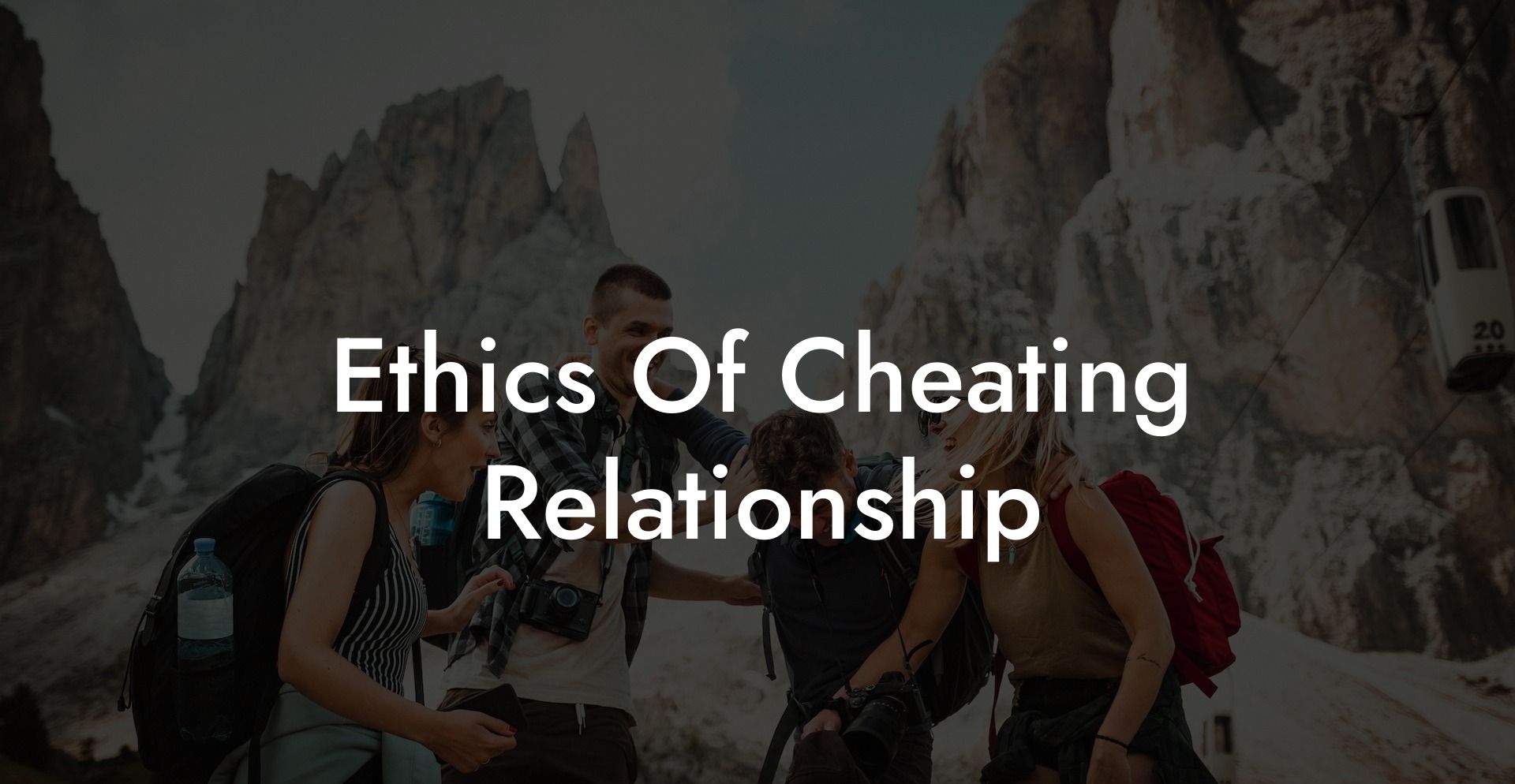Cheating in relationships has always been a topic of controversy and discussion, with various opinions on its ethical implications. In this article, we delve into the ethics of cheating in relationships and examine different perspectives on the matter. So, buckle up, and let's explore the murky world of infidelity and how it affects everyone involved.
Ethics Of Cheating Relationship Table of Contents
The Different Forms Of Cheating
The Different Forms Of Cheating
Physical Cheating
Physical cheating typically involves having a sexual encounter with someone outside of a committed relationship. It can range from kissing to full-blown sexual acts and often causes significant hurt and betrayal to the person being cheated on.
Emotional Cheating
Emotional cheating occurs when someone becomes emotionally attached to someone outside of their relationship. It could be manifested through intimate conversations, sharing deep feelings, and daydreaming about the "other" person. Though it sometimes lacks the physical aspect, emotional cheating can still cause significant damage.
Online Cheating
With the proliferation of social media and online dating, online cheating has become more prevalent. It may involve flirtatious or sexual messages, sharing explicit content, or forming intimate connections through virtual means. Like other forms of cheating, online infidelity often leads to hurt and betrayal.
Ethical Perspectives On Cheating
Utilitarianism
From a utilitarian viewpoint, cheating may be considered unethical if it causes more harm than good. This perspective focuses on maximizing happiness, and if cheating results in the suffering of the cheated partner and damage to a relationship, it's seen as a negative action.
Deontology
Deontological ethics revolves around the idea of duty and moral absolutes. From this viewpoint, cheating may be considered inherently unethical, as it breaks a commitment to one's partner and violates their trust. Deontology places a high value on personal integrity and honesty, making infidelity an unethical act.
Relativism
Moral relativism suggests that ethics is subjective and varies from person to person, culture to culture, and sometimes, situation to situation. From a relativistic standpoint, the ethics of cheating can be debated. Some may argue that if both partners agree to an open relationship or if the cheating leads to a positive outcome, it may be considered ethical.
Effects Of Cheating On Each Party
- The person being cheated on: They may experience feelings of betrayal, anger, hurt, and loss of trust.
- The person cheating: They might feel guilt, shame, or even fear of being caught and facing the consequences.
- The "other" person: They could potentially feel used or guilty for interfering in another's relationship.
- The relationship itself: Cheating can cause significant damage, leading to the end of the relationship, difficulty trusting again, or a tarnished reputation.
Ethics Of Cheating Relationship Example:
Jessica and John were in a monogamous relationship for three years. Unbeknownst to Jessica, John became emotionally involved with his coworker, Kate. As John and Kate's relationship deepened, Jessica noticed John's increasing emotional distance, but couldn't put her finger on the cause. When she eventually discovered the emotional infidelity, Jessica felt betrayed, mistrustful, and heartbroken. John struggled with feelings of guilt, and their relationship deteriorated.
So, is cheating ethically black and white? That depends on the ethical paradigms you subscribe to, and as we've explored, the landscape of infidelity is complex and varies depending on individual perspectives. Regardless of how you view it, it's crucial to consider the potential consequences and emotions involved for everyone touched by the act of cheating. If you'd like to learn more about other perspectives on monogamy, non-monogamy, and polyamory, be sure to explore our other guides on The Monogamy Experiment. And don't forget to share this post with your friends and join the conversation.













